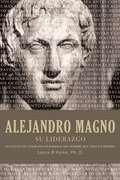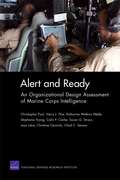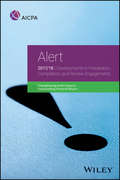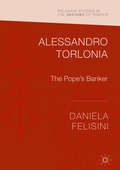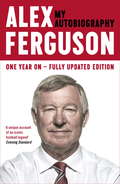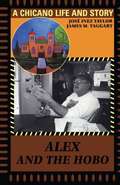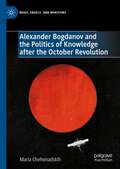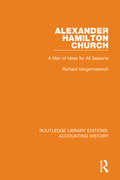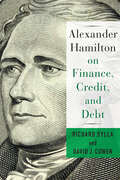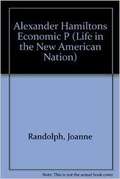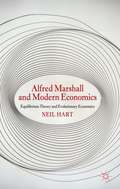- Table View
- List View
Alden Products, Inc.: European Manufacturing
by Robert H. HayesThe European organization of Alden Products, Inc. is contemplating a doubling of unit sales over the next ten years. Their largest plant, located in Holland, was set up 25 years earlier to supply all demands of the EEC countries on the continent. It has since expanded six times. Should it expand again? Should it build a new plant in Southern Europe? Or should it increase subcontracting?
Aldi: The Dark Horse Discounter
by David Lane Eric J. Van Den SteenIn 2013, Aldi—the world's 8th largest retailer—planned to accelerate its US expansion. Aldi was a German-based hard discounter that sold a limited assortment of private-label groceries and household items in barebones stores. Despite its presence with 1200 stores in 32 states, Aldi was still relatively unknown in the US. But it was often cited as one of the reasons for Walmart's exit from Germany. Could it compete with Walmart in the US, Walmart's home market?
Aldrich Capital Partners
by Jo Tango Alys FerragamoBy July 2016, the Aldrich Capital Partners team had spent over two years trying to raise their inaugural growth-equity fund. They had pitched to over 140 investors, but none had committed. Managing Partners Mirza Baig and Raz Zia each had extensive experience in the growth-equity space, but they did not have an investment track record together. Investors seemed hesitant to commit to a "blind pool" of capital with a new team. Now, the partners were contemplating an investment in a company code-named "Hollywood." The deal had several risks and was not a perfect fit with their investment thesis, but the partners wondered if this deal could prove their abilities and strategy to investors. Should Aldrich invest in Hollywood?
Alejandro magno su liderazgo
by Lance B. KurkeLíderes excepcionales son los que tienen la capacidad de analizar los problemas, optimizar los recursos, inspirar lealtad y ejecutar estrategias. No hay ejemplo tan impactante en la historia como el de Alejandro Magno, cuyas habilidades de liderazgo eran tan inmensas que resuenan todavía hoy, alrededor de 2.000 años después. Alejandro Magno su liderazgo, revela cuatro procesos de liderazgo que se extraen de la vida y los extraordinarios logros de Alejandro, Rey de Macedonia. Los lectores aprenderán como él: reencuadraba los problemas para abordar retos que parecían invencibles; construía alianzas usando su fuerza para generar confianza y respeto, no solo temor; estableció una identidad y se puso a sí mismo el "sello" de unificador, manteniendo así su territorio seguro mientras continuaba con la expansión del imperio; reconocía y asimilaba las culturas y símbolos de diferentes pueblos, lo que lo hacía una figura poderosa y confiada adondequiera que fuese. Alejandro Magno su liderazgo relata 34 fascinantes episodios de la expansión de Alejandro a través de Asia Menor, Egipto, Mesopotamia, el Medio Oriente, el Imperio Persa y la India. Cada ejemplo, ligado a un homólogo contemporáneo, provee valiosas lecciones, basadas en la inmortal leyenda de uno de los más grandes líderes de la historia.
Aleksandr Nikolaevich Engelgardt's Letters from the Country, 1872-1887
by Aleksandr Nikolaevich EngelgardtAleksandr Nikolaevich Engelgardt's first letter "From the Country" appeared in the May 1872 issue of the literary-political journal Notes of the Fatherland, published in St. Petersburg. It was an immediate hit, and the following letters, published over the next ten years, were the most important work of this progressive publication. These letters constituted the centerpiece of debate about the peasant and Russian agriculture in Russia's post-Emancipation era. Engelgardt provided an eyewitness account of the state of agriculture and the success of the land reform, relations between the gentry and the peasantry, the structure of rural existence, and the moral climate in the villages near his estate of Batishchevo in Smolensk Province. For contemporary, educated Russians, Engelgardt was the undisputed authority and best source of information on the countryside. As the agricultural editor of the neo-Slavophile journal Rus' conceded in 1881, there was no one in Russia who could match Engelgardt's knowledge, force of argument, and precision in presentation and for that reason, the letters stood beyond criticism. This translation is ideal for anyone interested in Russian history and peasant studies.
Aleph Farms: A New Culture of Meat
by Elie Ofek Jeff HuizingaAleph Farms, an Israeli food-tech start-up, was hoping to play a major role in disrupting the conventional meat sector. Compared to intensive agricultural practices, Aleph's cultured (or lab-grown) meat solution held the promise of considerably reducing greenhouse gas emissions, as well as the use of land and water, while providing a new source of food for a rapidly growing world population. With much of the science already worked out, the company was now facing a host of challenges as it planned to launch its first product-a cultured steak. In particular, Aleph's CEO, Didier Toubia, and his management team had to figure out the best way to position and bring to market its innovative steaks, with a debut expected in late 2022 in Singapore. Management fully recognized potential barriers to consumer adoption and strived to build a relevant brand image. On the production side, the company knew it had to scale quickly and continue to bring down costs so that its steaks approached price parity with conventional meat. Yet given the intensive capital expenditures involved, this was no simple feat. Planning for the longer term, the company was beginning to consider its next product line.
Alere
by Raffaella Sadun Catherine Slater Channing SpencerThe Board of Alere, Inc, a leading medical diagnostic firm, is evaluating the offer made by Ron Zwanziger, the firm's founder and former CEO, to acquire the company and take it private. The offer arrives at the end of a tumultuous year for the company, which saw Zwanziger fighting and ultimately losing a confrontation with activist investors Coppersmith Capital. How should the board evaluate this offer? Should they reject it, on the basis that Zwanziger's decision to expand into integrated healthcare solutions was the main reason behind the company's poor stock performance, as Coppersmith claimed? Or should they once more place their trust in Zwanziger's leadership, and in Alere's ability to effectively implement his vision?
Alert and Ready: An Organizational Design Assessment of Marine Corps Intelligence
by Christopher Paul Colin P. Clarke Harry J. Thie Stephanie Young Katharine Watkins WebbOver the past decade, especially, U.S. Marine Corps (USMC) intelligence has had to tailor its organization to meet the evolving demands of the operational environment. This has resulted in a number of ad hoc arrangements, practices, and organizations. A broad review of the organizational design of USMC intelligence examined how to align it efficiently and effectively with current and future missions and functions.
Alert: Developments in Preparation, Compilation, and Review Engagements, 2017/18
by AicpaThis annual Alert covers the latest developments in the preparation, compilation and review engagements, including current exposure drafts from Accounting and Review Services Committee (ARSC), and common deficiencies identified during peer reviews. Reviewed by ARSC chair, it also addresses the latest and emerging practice issues, and provides valuable information regarding accounting and reporting developments. Key benefits of this title include: Discussion of two new exposure drafts. Current practice issues in SSARS engagements. Ethics updates. Peer review common findings. Additional SSARS engagement resources
Alessandro Torlonia: The Pope’s Banker (Palgrave Studies in the History of Finance)
by Daniela FelisiniThis book provides a vivid biography of a towering Italian banker, pioneer and entrepreneur. It weaves the entrepreneurial ventures of Alessandro Torlonia (1800-1886) through the narratives of business and politics in the Nineteenth century, the growth of European financial markets and the decline of Papal power during the Italian Risorgimento. The discussion is founded in rigorous historical research using original sources such as the Archivum Secretum Vaticanum papers and other official documents; the archives of the Torlonia family, and of the Rothschild bank in Paris; memoirs; correspondences, and newspapers. Through this book readers learn that Alessandro Torlonia was a man of many faces, who was one of the most complex and influential characters of Italian economic life in the nineteenth century. Felisini also provides an expert critique of the financial history of the papacy: an area of heightened interest given the notoriety of relations between the Holy See and its bankers in the twentieth and twenty-first centuries. Focal topics such as the history of European elites and the history of European financial markets will have an interdisciplinary appeal for scholars and researchers.
Alessi: Evolution of an Italian Design Factory (A)
by Youngme MoonAlessio Alessi, head of distribution at family-run Alessi S.p.A., is facing price and brand confusion among customers and is considering reorganizing Alessi's worldwide network of distributors. By describing the challenges facing Alessi, an internationally acclaimed design and manufacturing company of household objects for the table and kitchen, the case examines consumer marketing and distribution in general, as applied in the niche market of highly designed household goods for an Italian design factory. Includes color exhibits.
Alex Atala: Bringing Brazil to the World
by Boris Groysberg Priscilla Zogbi Ruth CostasBrazilian Michelin-star chef Alex Atala managed four restaurants, a foundation advocating for the environment, and a seminar focused on food and sustainability. His new initiative was opening a hotel.
Alex Ferguson: My Autobiography
by Alex FergusonSir Alex announced his retirement as manager of Manchester United after 27 years in the role. He has gone out in a blaze of glory, with United winning the Premier League for the 13th time, and he is widely considered to be the greatest manager in the history of British football. <P><P>Over the last quarter of a century there have been seismic changes at Manchester United. The only constant element has been the quality of the manager's league-winning squad and United's run of success, which included winning the Champions League for a second time in 2008. <P>Sir Alex created a purposeful, but welcoming, and much envied culture at the club which has lasted the test of time. Sir Alex saw Manchester United change from a conventional football club to what is now a major business enterprise, and he never failed to move with the times. It was directly due to his vision, energy and ability that he was able to build teams both on and off the pitch. He was a man-manager of phenomenal skill, and increasingly he had to deal with global stars. <P><P>His relationship with Cristiano Ronaldo, for instance, was excellent and David Beckham has described Sir Alex as a father figure. Over the past four years, Sir Alex has been reflecting on and jotting down the highlights of his extraordinary career and in his new book he will reveal his amazing story as it unfolded, from his very early days in the tough shipyard areas of Govan.
Alex Montana at ESH Manufacturing Co.
by Thomas J. Delong Michael KernishAlex Montana sat at his desk pondering the career decision before him. Alex was director of the North American division of ESH Manufacturing, a $4.6 billion, Cleveland-based company with operations on three continents. ESH's CEO had just offered Montana a promotion to global vice-president. Normally, Montana would have jumped at such an opportunity, but he worried about its impact on his already strained personal life. Since his last promotion, he had trouble balancing an increasingly demanding workload with his responsibilities to his wife and daughter at home. Montana felt pressure to accept the promotion. His boss expected him to accept; in fact, his boss had emphasized that he had no second choice. He had always dreamed of making it big in the business world. Success in this new role could put him in the running for COO and, eventually, CEO. But at what cost?
Alex and the Hobo: A Chicano Life and Story
by Taylor James M. Taggart José InezWhen a ten-year-old boy befriends a mysterious hobo in his southern Colorado hometown in the early 1940s, he learns about evil in his community and takes his first steps toward manhood by attempting to protect his new friend from corrupt officials. Though a fictional story, Alex and the Hobo is written out of the life experiences of its author, José Inez (Joe) Taylor, and it realistically portrays a boy's coming-of-age as a Spanish-speaking man who must carve out an honorable place for himself in a class-stratified and Anglo-dominated society. In this innovative ethnography, anthropologist James Taggart collaborates with Joe Taylor to explore how Alex and the Hobo sprang from Taylor's life experiences and how it presents an insider's view of Mexicano culture and its constructions of manhood. They frame the story (included in its entirety) with chapters that discuss how it encapsulates notions that Taylor learned from the Chicano movement, the farmworkers' union, his community, his father, his mother, and his religion. Taggart gives the ethnography a solid theoretical underpinning by discussing how the story and Taylor's account of how he created it represent an act of resistance to the class system that Taylor perceives as destroying his native culture.
Alexa Is Stealing Your Job: The Impact of Artificial Intelligence on Your Future
by Rhonda ScharfThis guided tour of how AI will impact the future of work explores the ways both companies and employees can adapt to the new normal. Artificial intelligence is taking over. Ask Alexa to call a client or confirm your schedule for the day and she does so immediately. Ask her a question, give her a command, or just share a joke together, and she becomes your new best employee—one who never makes a mistake or calls out sick. In other words, Alexa can nix the need for millions of front-line workers. As companies race to keep up with advances in AI, employees must race just to keep their job. Author and public speaker Rhonda Scharf shows readers how a willingness to adapt to the new normal keeps both businesses and their employees relevant in these changing times. Alexa Is Stealing Your Job reveals what the future entails by diving into the world of AI and exploring how it impacts lives, careers, and the future.
Alexander Bandelli (A)
by Thomas J. Delong Catherine ConneelyAlexander Bandelli has the opportunity to redefine the way real estate business is done in the Northeast region. He has just joined Ronsini and Fitch and has been asked by senior management to move to a client focus rather than the older, traditional transaction focus. Alexander has many challenges before him. How should he prioritize his work? Does he focus outside the organization or internally? Is the organization prepared for this change project? What should he do first?
Alexander Bogdanov and the Politics of Knowledge after the October Revolution (Marx, Engels, and Marxisms)
by Maria ChehonadskihIn this book, Maria Chehonadskih unsettles established narratives about the formation of a revolutionary canon after the October Revolution. Displacing the centre of gravity from dialectical materialism to the rapid dissemination, canonisation and decline of a striking convergence of empiricism and Marxism, she explores how this tendency, overshadowed by official historiography, establishes a new attitude to modernity and progress, nature and environment, agency and subjectivity, party and class, knowledge and power. The book traces the adventure of the synthesis of empiricism and Marxism across philosophy, science, politics, art and literature from the 1890s to the 1930s, offering a radical rethinking of the true scope and scale that the main proponent of Empirio-Marxism, Alexander Bogdanov, had on the post-revolutionary socialist legacies. Chehonadskih draws on both key and forgotten figures and movements, such as Proletkult, Productivism and Constructivism, filling a gap in the literature that will be particularly significant for Marxism, continental philosophy, art theory and Slavic studies specialists.
Alexander Hamilton Church: A Man of Ideas for All Seasons (Routledge Library Editions: Accounting History #6)
by Richard VangermeerschThis book, first published in 1988, reassesses the data on Church – accountant, manager and industrial engineer – and stresses the theoretical impact of his ideas upon contemporary business structures as well as his practical desire to implement concepts to better the working man’s day. The past impact of engineers and engineering concepts on accounting and management has previously been overlooked, and this book corrects this. The discussion herein may inspire a much-needed dialogue among engineers, accountants and managers.
Alexander Hamilton on Finance, Credit, and Debt
by David Cowen Richard SyllaWhile serving as the first Treasury Secretary from 1789 to 1795, Alexander Hamilton engineered a financial revolution. Hamilton established the Treasury debt market, the dollar, and a central bank, while strategically prompting private entrepreneurs to establish securities markets and stock exchanges and encouraging state governments to charter a number of commercial banks and other business corporations. Yet despite a recent surge of interest in Hamilton, U.S. financial modernization has not been fully recognized as one of his greatest achievements.This book traces the development of Hamilton's financial thinking, policies, and actions through a selection of his writings. <P><P>The financial historians and Hamilton experts Richard Sylla and David J. Cowen provide commentary that demonstrates the impact Hamilton had on the modern economic system, guiding readers through Hamilton's distinguished career. The book showcases Hamilton’s thoughts on the nation's founding, the need for a strong central government, confronting problems such as a depreciating paper currency and weak public credit, and the architecture of the financial system. His great state papers on public credit, the national bank, the mint, and manufactures instructed reform of the nation’s finances and jumpstarted economic growth. Hamilton practiced what he preached: he played a key role in the founding of three banks and a manufacturing corporation, and his deft political maneuvering and economic savvy saved the fledgling republic's economy during the country's first full-blown financial crisis in 1792. Sylla and Cowen center Hamilton's writings on finance among his most important accomplishments, making his brilliance as an economic policy maker accessible to all interested in this Founding Father's legacy.
Alexander Hamilton on Finance, Credit, and Debt
by Richard Sylla David J. Cowen&“A treasure trove for financial and public policy geeks . . . will also help lay readers go beyond the hit musical in understanding Hamilton&’s lasting significance.&” —Publishers Weekly While serving as the first treasury secretary from 1789 to 1795, Alexander Hamilton engineered a financial revolution. He established the treasury debt market, the dollar, and a central bank, while strategically prompting private entrepreneurs to establish securities markets and stock exchanges and encouraging state governments to charter a number of commercial banks and other business corporations. Yet despite a recent surge of interest in Hamilton, US financial modernization has not been fully recognized as one of his greatest achievements. This book traces the development of Hamilton&’s financial thinking, policies, and actions through a selection of his writings. Financial historians and Hamilton experts Richard Sylla and David J. Cowen provide commentary that demonstrates the impact Hamilton had on the modern economic system, guiding readers through Hamilton&’s distinguished career. It showcases Hamilton&’s thoughts on the nation&’s founding, the need for a strong central government, problems such as a depreciating paper currency and weak public credit, and the architecture of the financial system. His great state papers on public credit, the national bank, the mint, and manufactures instructed reform of the nation&’s finances and jumpstarted economic growth. Hamilton practiced what he preached: he played a key role in the founding of three banks and a manufacturing corporation—and his deft political maneuvering and economic savvy saved the fledgling republic&’s economy during the country&’s first full-blown financial crisis in 1792. &“A fascinating examination of Hamiltonian economics.&” —The Washington Times
Alexander Hamilton's Economic Plan: Solving Problems In America's New Economy (Primary Sources Of Life In The New American Nation Ser.)
by Ryan P. RandolphAlexander Hamilton's Economic Plan: Solving Problems in America's New Economy
Alfred Marshall and Modern Economics
by Neil HartAlfred Marshall and Modern Economics demonstrates that it is possible to take Marshall's theoretical insights in two distinctly different directions: one is to reject evolution and go down the equilibrium path, while the second is to reject equilibrium and go down the evolutionary path. Neil Hart re-examines Marshall's legacy and relevance to modern economic analysis with the more settled conventional wisdom concerning evolutionary processes allowing advances in economic theorising which were not possible in Marshall's life time. A more theoretically coherent and relevant approach to modern economic analysis is proposed by connecting aspects of Marshall's revitalised evolutionary economics with Post-Keynesian theories, in a manner which parallels Marshall's endeavour to maintain a unity between value theory and explanations of industry organisation and economic development. This book will be essential reading for all researchers and students interested in the history of economic thought.

